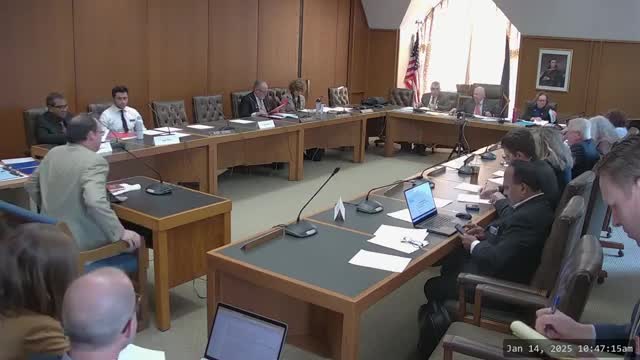Retailers, regulators spar over bill to limit scanning and storage of ID data
Get AI-powered insights, summaries, and transcripts
Subscribe
Summary
House Bill 77 would restrict merchants from scanning and retaining personal data from driver’s licenses when selling alcohol and tobacco; witnesses from retail, grocery, convenience, liquor enforcement and privacy advocates debated whether scanners retain data and how to balance privacy with age‑verification and compliance needs.
The House Commerce and Consumer Affairs Committee took testimony on House Bill 77, which would limit scanning and storage of personally identifiable information from driver’s licenses by merchants selling alcohol and tobacco.
Sponsor Representative Kevin Verville framed the bill as a consumer-privacy measure: constituents reported that some retail scanners captured and retained full license information — name, address and license number — raising identity‑theft concerns. Verville said the bill was narrowed from a broader ban and he is open to amendment language that preserves age‑verification while preventing data retention.
Deborah Johnson, a Grantham resident, demonstrated a commercial product marketed to scan and store driver’s licenses and urged broader protections. “It scans and stores driver licenses… and creates a searchable database of the scanned cards,” Johnson said while showing packet materials that included marketing screenshots.
Retail and grocery associations, convenience‑store operators, and liquor enforcement witnesses pushed back. Tom Prasol of the New Hampshire Retail Association and Rich Parsons of the New Hampshire Grocers Association said many point‑of‑sale systems use a “red light/green light” scan to confirm only age and do not retain personal data; Chris Gagnon of the New England Convenience Store Association said his company’s scanners “do not store any personal information” and help reduce human error and illegal sales to minors. The Liquor Commission’s Deputy Chief Danielle Ellison told the committee that the agency supports tools that help licensees verify age and avoid sales to minors, but said any retained personal information would violate current rules. “We pull receipts. We interview staff. We pull surveillance video if that’s the case… If a person under the age of 21 is caught in possession of alcohol inside your licensed establishment, then you are liable as the licensee,” Ellison explained.
Committee members pressed for technical details: whether scanners are locally hosted or linked to DMV/Real ID verification services, whether devices retain records, and whether the Department of Safety had authorized specific uses. Several witnesses and the Liquor Commission said some systems simply read a barcode or QR code on the back of licenses and perform an on‑the‑spot age calculation without storing other personal fields. Opponents asked to remove the word “scan” from the bill and instead ban storage or retention of information while preserving scanning for immediate age verification.
The attorney general’s office and Department of Safety were referenced in testimony about an authorization process; residents said they sought but did not receive clear answers from authorities. Retail groups noted recently enacted state privacy law (SB 255) that requires businesses to provide consumers a way to purge stored data.
The committee closed public testimony on HB 77 after a long hearing; Representative Verville said he would work on language to remove problematic wording while achieving the bill’s privacy goal. The matter was referred for further review by subcommittee.
